Where is Disney’s Obi-Wan Kenobi series filmed?
The north African country provided the backdrop to one of Hollywood’s most famous movies. Now Tunisia is trying to entice tourists to visit again, reports Simon Speakman Cordall in Tunis
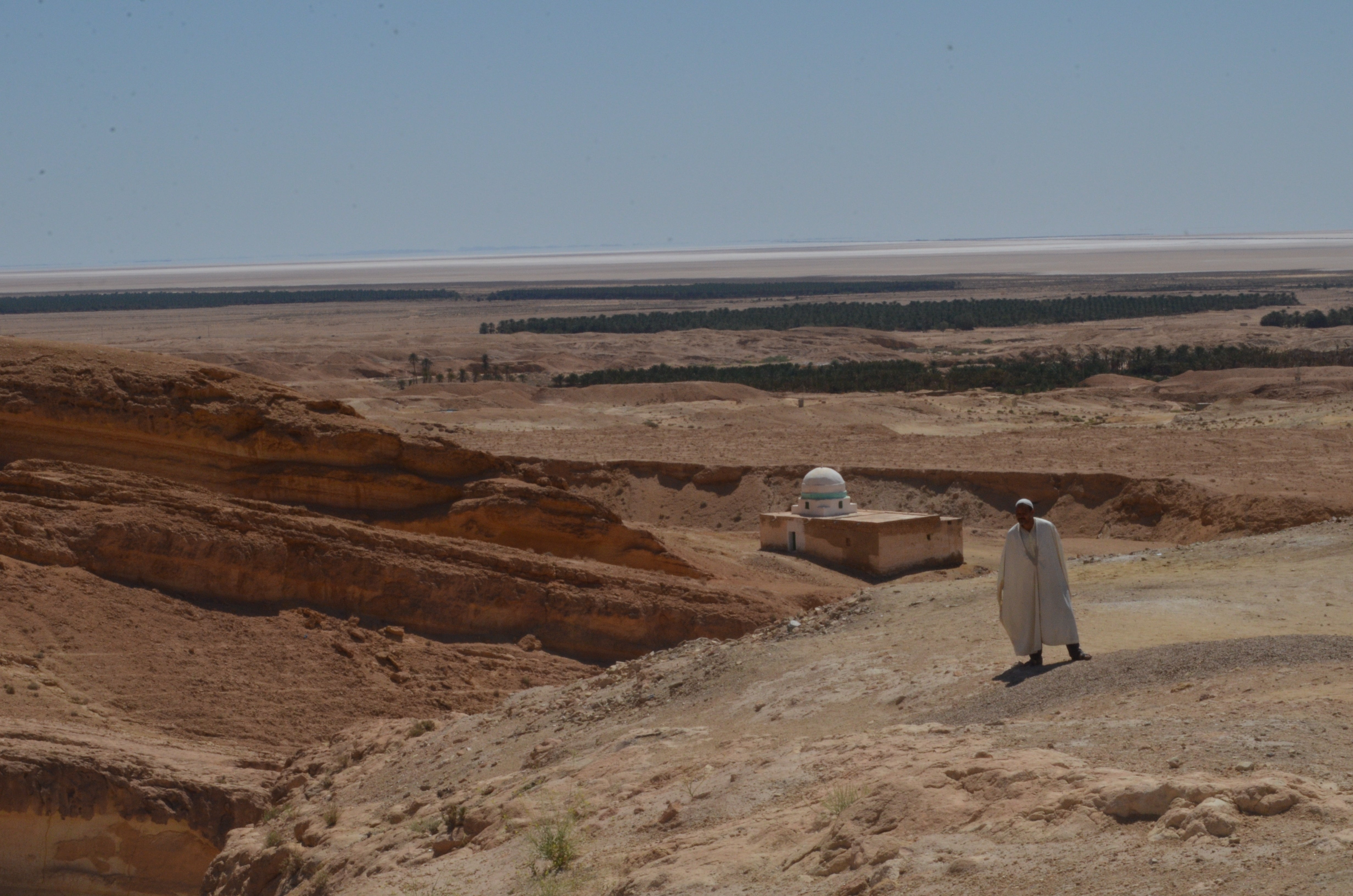
Your support helps us to tell the story
From reproductive rights to climate change to Big Tech, The Independent is on the ground when the story is developing. Whether it's investigating the financials of Elon Musk's pro-Trump PAC or producing our latest documentary, 'The A Word', which shines a light on the American women fighting for reproductive rights, we know how important it is to parse out the facts from the messaging.
At such a critical moment in US history, we need reporters on the ground. Your donation allows us to keep sending journalists to speak to both sides of the story.
The Independent is trusted by Americans across the entire political spectrum. And unlike many other quality news outlets, we choose not to lock Americans out of our reporting and analysis with paywalls. We believe quality journalism should be available to everyone, paid for by those who can afford it.
Your support makes all the difference.Obi-Wan Kenobi, the limited series charting the further adventures of Jedi Master Obi-Wan Kenobi, lands on Disney + tonight.
Set years after the events that concluded the ill-starred prequel films, the series picks up after Kenobi, again played by Ewan McGregor, has deposited the infant Luke Skywalker on the desert planet of Tatooine and watches from the sidelines as he comes of age.
The latest round of filming took place mostly in Los Angeles, with McGregor battling the growing might of the Empire against a series of special effects and digital backgrounds.
However, denied the effects of today, the original films, shot a long time ago in a continent far, far away, had to look to the deserts of Tunisia for the realism provided by contemporary digital forces.
George Lucas shot at locations across Tunisia, taking in everything from the holiday isle of Djerba and the traditional troglodyte houses of the interior to the canyons and salt flats around Tozeur, in the country’s south.
However, over recent years, an endless procession of setbacks has visited Tunisia and its southern desert reaches, stalling visitor numbers and stymieing the tourism trade.
Over the last 11 years, revolution, radicalisation, environmental concerns and the pandemic, allied to the English language films’ relative obscurity among the local population, have all damned many of the original locations, which once withstood the might of the Galactic Empire, to defeat at the hands of disinterest and neglect.
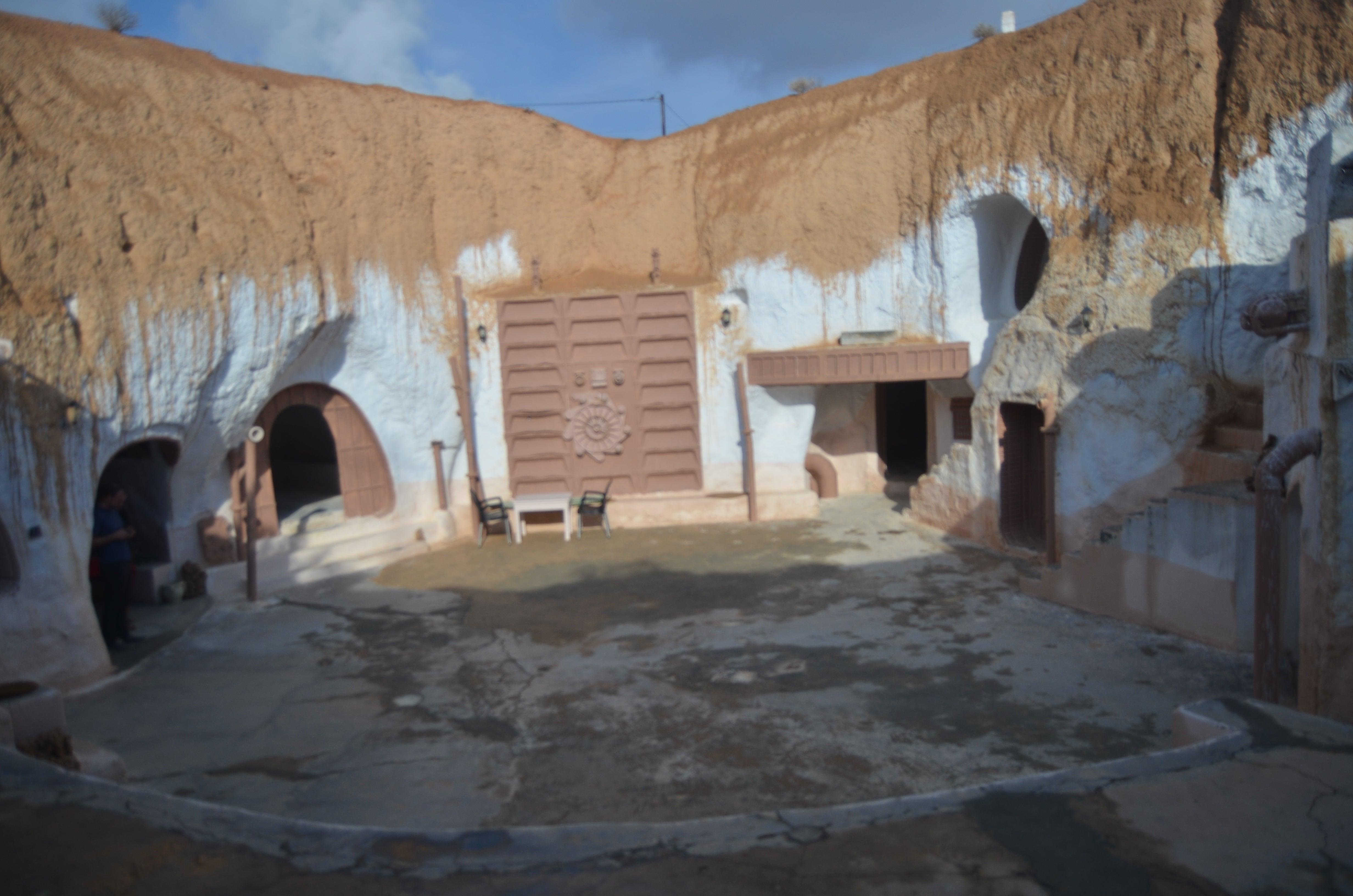
That’s not to say there isn’t cause for new hope.
Plans hatched by the German foundation, GIZ, along with Tunisia’s own Ministry of Tourism, to open up the locations of four of the better-known films shot in Tunisia are already bearing fruit.
Before the revolution in 2010/11, and the construction of bespoke film sets in Morocco, Tunisia played host to a number of major shoots, with Raiders of the Lost Ark, The English Patient and, somewhat controversially, Monty Python’s Life of Brian all being filmed in Tunisia, and they are included on the new route.

Watch Apple TV+ free for 7 days
New subscribers only. £8.99/mo. after free trial. Plan auto-renews until cancelled

Watch Apple TV+ free for 7 days
New subscribers only. £8.99/mo. after free trial. Plan auto-renews until cancelled
“Some of the Star Wars sites are still very well preserved, while some others still need investment in restoration,” a GIZ spokesperson said.
“There are, however, many efforts. For example, at the beginning of May, the house of Luke Skywalker – ‘Lars Homestead’ – was renovated by the Star Wars Fan Club with the support of GIZ.”
However, this is not the full story. Grand Sahara Adventures used to run tours of many of the Star Wars locations before the pandemic.
There are “no more tourists, for two years; even the [annual] Sahara festival has been cancelled,” Bruno Fournier from the agency said by email. Nevertheless, he and others all pointed to the significant demand for not just Star Wars tourism, but an overall hunger to travel to and around Tunisia’s remarkable desert landscape.
It’s in and around the southern town of Tozeur where most of the truly recognisable locations can be found. It’s here that you can find Luke Skywalker’s newly renovated space igloo, Sidi Bouhlel, or Star Wars Canyon, as it became known, and the sprawling fibreglass sets of Mos Espa that, whatever Anakin Skywalker’s feelings about the matter, are gradually losing their battle against the sand.
While development may be underway, the Jundland wastes, which have been the exterior location for Luke Skywalker’s childhood home since 1977, are not to be travelled lightly.
Not too far away stand the more extensive sets of Mos Espa, used in many of the prequels. To see the village, isolated, against the flats is to at least grasp some of the otherworldly atmosphere the prequel films were reaching for.
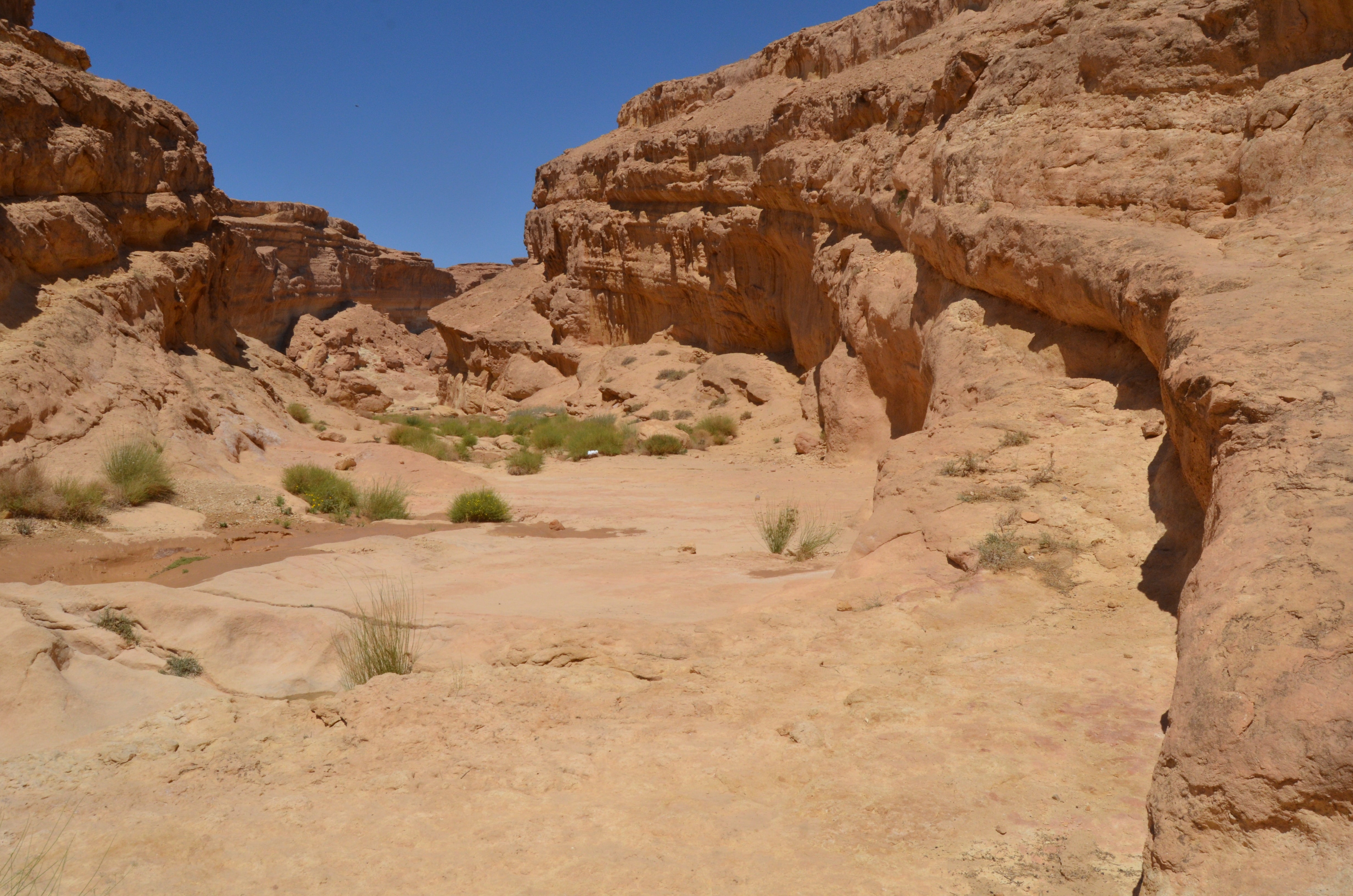
Heading away from Mos Espa, past the Camel’s Neck sand structure that heralded the arrival of the villainous Darth Maul, and into the foothills of the Atlas mountain range, lies Sidi Bouhlel canyon.
At the time, it proved so popular with the production it came to be known as Star Wars Canyon. If you visit now, the odds are you’ll be undisturbed as you trek past the shrines to long dead Sufi saints to look down into the canyons and imagine the Jawas and Tusken Raiders that, in 1977, would have given any passing anthropologist a start.
That many of the truths we cling to are dependent upon our point of view is never truer than when stepping from the exterior of Luke’s childhood home near Tozeur to its interior, some 175 miles distant in the central town of Matmata. Here, the traditional underground structures that date back to Tunisia’s occupation by the Phonecians saw unexpected service as the Lars Homestead.
Today, it serves as a working hotel, the Sidi Driss, allowing visitors to sleep in the beds of Luke, Lars and Beru. In its large courtyard, carved out of the desert stone years earlier, stand the fibreglass doors and moisture vaporators of a universe far distant from the overlooked hotel at the side of a winding mountain road.
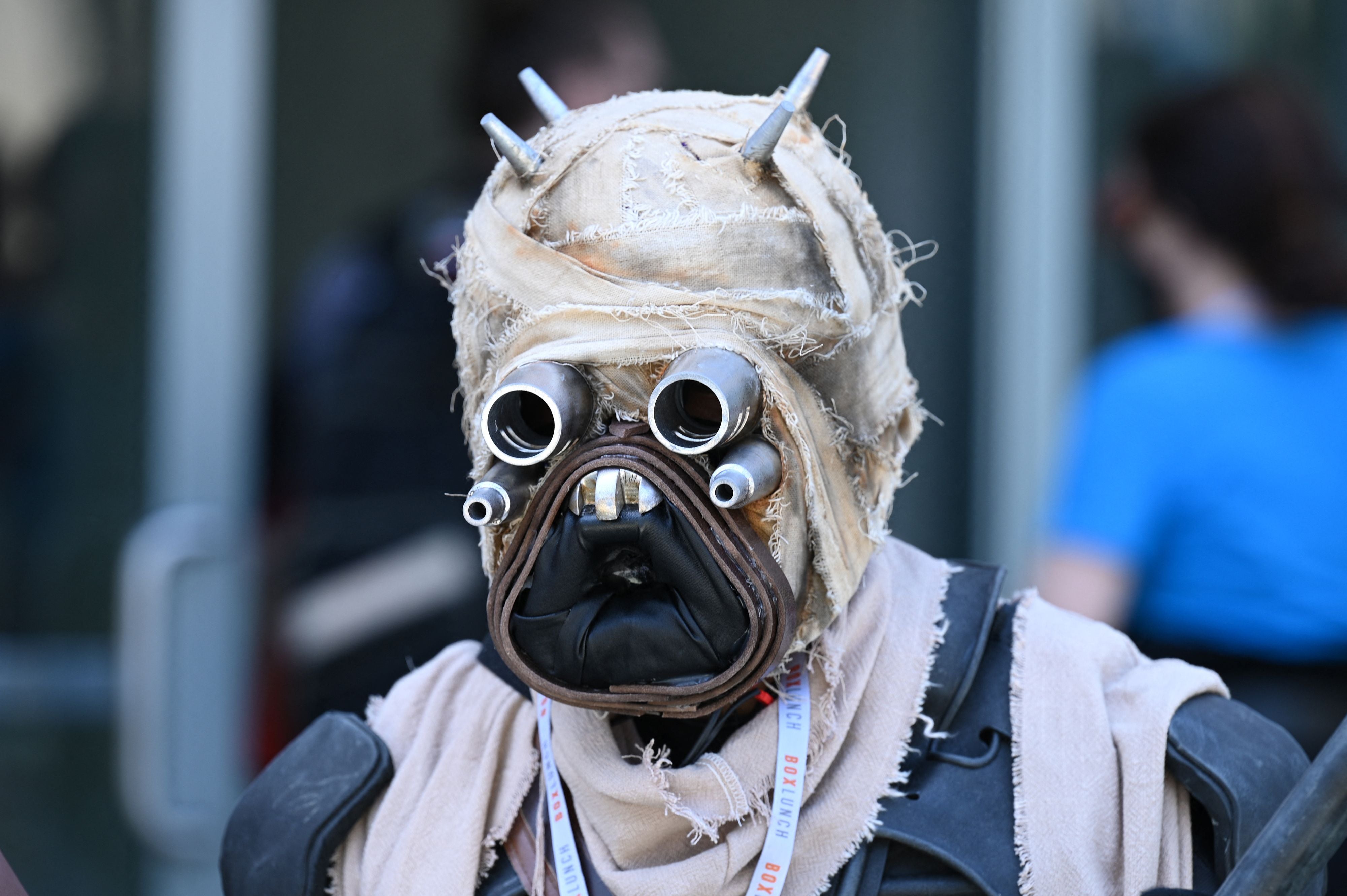
Closed for much of the pandemic, the hotel faces an uncertain future.
Its manager, Massoud Ben Rachid, recalls having to steer his family and his workers through the worst of the pandemic. The future is uncertain.
“We don’t want to even think of closing,” he said. “And I say ‘we’ because the hotel is a collective concern. It really is. At some point, we even had to reduce (our) salaries, so that the hotel stayed open.
“We feel helpless. We want it to thrive and we do all we can, but the situation becomes too difficult at times of crisis. We hope this summer will be good,” he said.
Like tourist destinations across the Mediterranean, Tunisia has much pinned on the summer ahead. When the pandemic hit, the country lost around 15 per cent of its GDP and countless numbers of jobs, in a country where casual employment is often the norm.
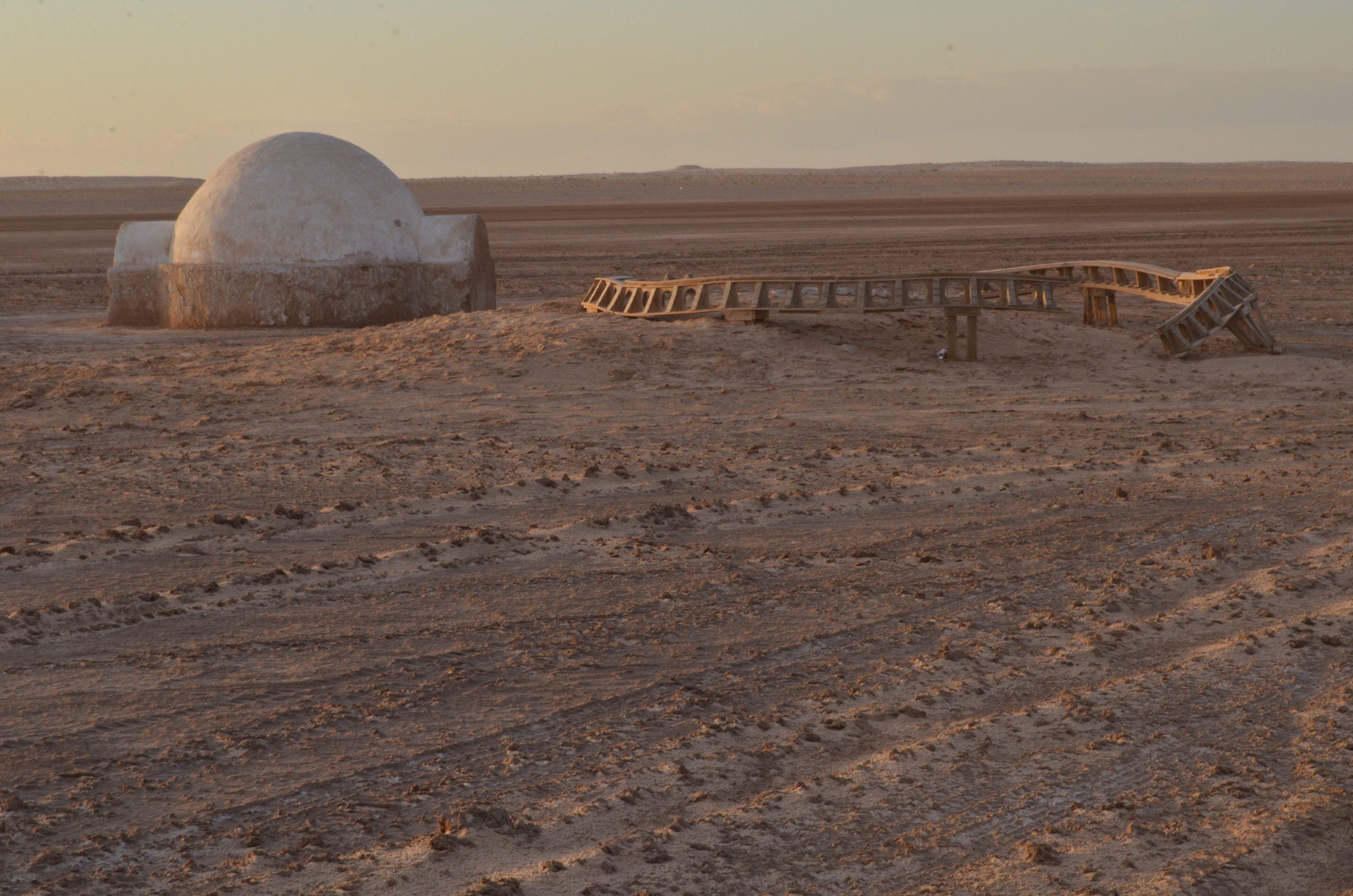
However, from the hotels of Matmata to the market squares of Ksar Hadada, many will be keeping one eye on the television tonight and hoping, contrary to past experience, to have a very good feeling about this.
Join our commenting forum
Join thought-provoking conversations, follow other Independent readers and see their replies
Comments